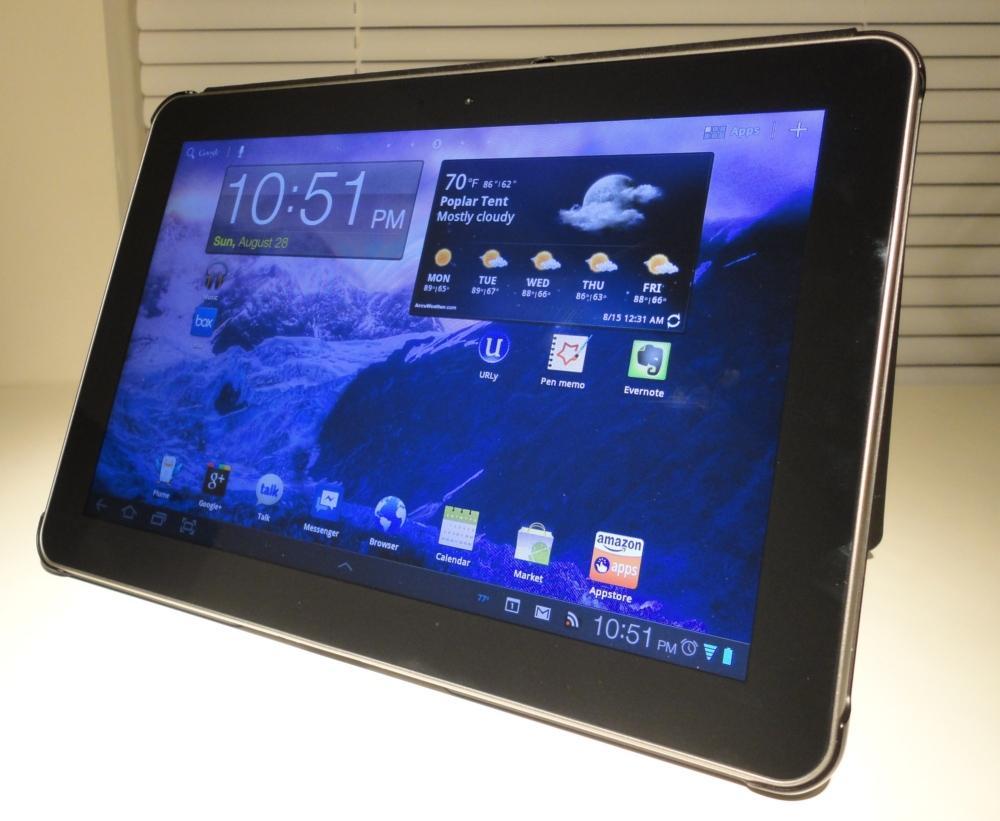
It was not too long ago that I was defending modern tablets, saying that, contrary to popular belief, there was a place for them when it comes to the average consumer. I've always loved the idea of a more portable computing option. And it's no secret that sometimes the small display of a smartphone is not enough to get the job done – not with any amount of comfort anyway. A tablet is a perfect balance between the two. For example, you don't always need your computer to browse the Internet from your couch. Likewise, sifting through a full email inbox on a 4-inch screen can be quite a chore. The extra display space of a tablet meets somewhere in the middle and, among other things, make this sort of thing much more manageable.
I will admit that at first, I had no idea what I was going to do with a tablet. All I knew was that I wanted to get my filthy paws on one and see what all the fuss was about, first-hand. For the first few months, the first tablet was great; I barely ever put it down. Then the new wore off and I was questioning why I even had it in the first place. Nearly 20 tablets later, I know exactly where and how tablets fit into my life. Don't get me wrong, it's still a niche category, but it's finally starting to catch on and take off.
For anyone who has paid the slightest amount of attention to the tablet market knows that Apple's iPad and iPad 2 are running the show. The iPad was the first serious, high-end tablet to launch and it caught the market by surprise. Now Apple has the majority of the tablet market share and others are finding themselves playing a difficult game of catch-up.
What truly gets under my skin, though, is the constant banter about how Android tablets are failing – or are already dead. Now I feel obligated to step in and vouch for the little green robot in the tablet industry.
It's true that Android tablets aren't quite living up to the fanfare they created during and after CES 2011. A whole bunch of high-end Android tablets were debuted and seemed to have a lot to offer. However, several of them have since come and gone without ever really leaving their mark in tablet market share. Out of all the different Android tablets that launched over the past year, only a select few have lived up to their hype: Galaxy Tab 10.1, Eee Pad Transformer, Transformer Prime, etc. And only 15 to 30 percent of all tablets sold in 2011 were Android-powered.
I agree. Android tablets aren't where they should be by now: market share is far below expectations, the devices and software, in most cases, are mediocre, app development is behind and the tablets themselves are priced poorly. But that hardly means they're dead. In fact, they're just getting started.
You may recall a time that these very things were being said about Android phones. I remember people all around saying, "Android will never make it as a viable smartphone platform." But look at it now. It is the most popular mobile operating system in the world. The same will eventually happen with tablets, I figure.
Jason Hiner of TechRepublic gives us four reasons that Android tablets "failed": 16:9 aspect ratio, security, a lack of tablet-specific apps and pricing. I can agree that the 16:9 aspect ratio is awkward at times, especially in portrait. But nine times out of 10, I'm going to opt to use my tablet in landscape anyway. As for security, it is an issue when it comes to enterprise. But in terms of average consumers, if they're not concerned about security when it comes to Android phones, why would they with Android tablets? And pricing? If nothing else, pricing is what's making Android tablet popularity grow (i.e.: Kindle Fire).
If anything is hurting Android tablet sales, it has to be the number of tablet-specific applications in comparison to, say, the iPad. It's almost no competition. And if people are buying a device for entertainment, an excess of applications at your disposal never hurt anyone.
But what's more important than what is hurting Android tablets is what Android (and partner OEMs) are doing for the tablet industry. First and foremost, they're slowly bringing the average price of tablets down. And Android OEMs are also giving buyers the option of size and form factor. It's the exact same thing that happened in the smartphone industry, just in tablets. Android gets off to a late start, plays catch-up for a while and quickly begins to grow popularity. Eventually, Android tablets will catch (and maybe surpass) the iPad. As tablet OEMs begin to push out more devices, Apple will have a tough time keeping up with all of the rapid changes.
What say you, folks? Are Android tablets a lost cause? Are they failing? Or is this just a slow start across the board?